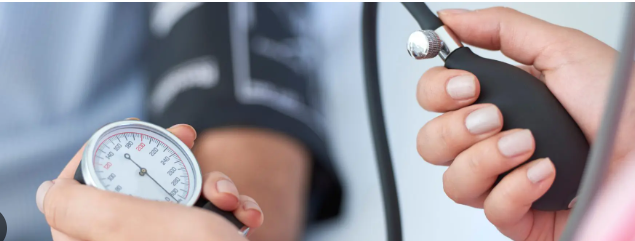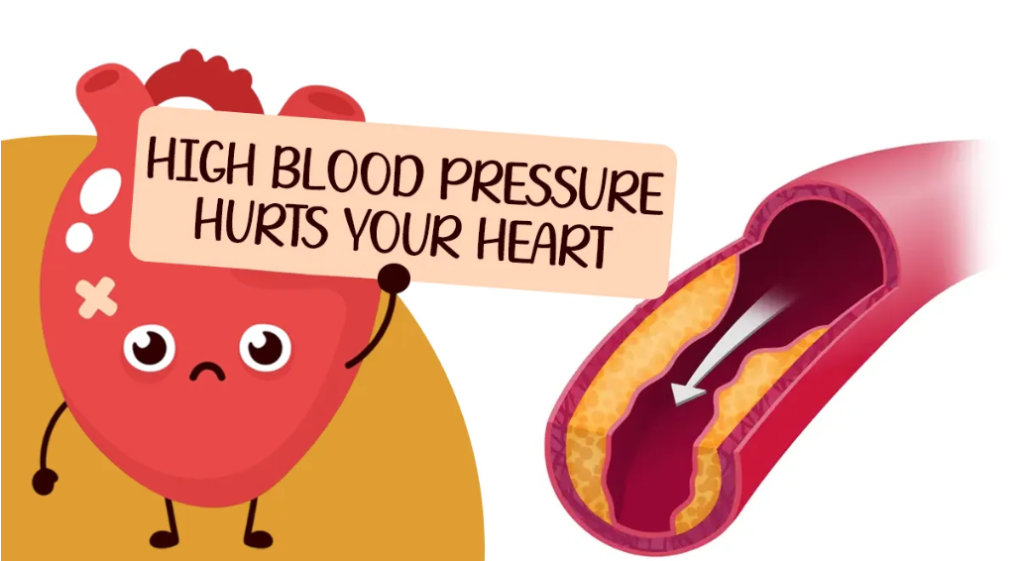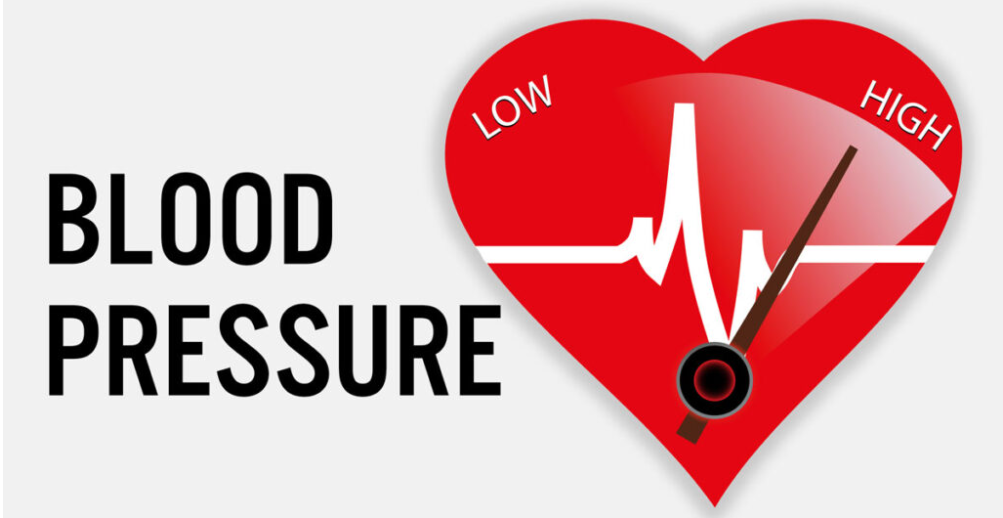High blood pressure, also called Hypertension, is a chronic medical condition where the force of blood against the walls of the arteries is consistently too high. Over time, this can damage blood vessels, the heart, and other organs.

Causes:
Primary (Essential) Hypertension
- Develops gradually over many years.
- No single identifiable cause, but linked to:
- Aging
- Family history (genetics)
- Being overweight or obese
- Sedentary lifestyle (lack of exercise)
- High salt (sodium) diet
- Smoking or excessive alcohol use
- Chronic stress
Secondary Hypertension
- Caused by another health condition or medication. Common causes include:
- Kidney disease (chronic kidney disease, renal artery narrowing)
- Hormonal disorders (e.g., thyroid problems, adrenal gland tumors, Cushing’s syndrome, hyperaldosteronism)
- Sleep apnea
- Medications (e.g., birth control pills, decongestants, NSAIDs, steroids)
- Drug or alcohol abuse
Symptoms:
- Most people have no symptoms → that’s why it’s often called a “silent killer.”
- When symptoms do appear (usually in severe or uncontrolled cases), they may include:
- Persistent headaches (especially in the morning).
- Dizziness or lightheadedness.
- Blurred vision or vision changes.
- Shortness of breath.
- Nosebleeds.
- Chest pain or palpitations (if it affects the heart).
- Fatigue or confusion (rare, in very high blood pressure).

Treatment of Hypertension:
Lifestyle Modifications (First-line treatment)
- Reduce salt (sodium) intake.
- Eat a healthy diet (DASH diet: fruits, vegetables, whole grains, lean protein).
- Maintain a healthy weight.
- Exercise regularly (30 min/day, 5 times a week).
- Limit alcohol consumption.
- Quit smoking.
- Manage stress (relaxation, meditation, good sleep).
2. Medications (if lifestyle changes aren’t enough)
- Diuretics (e.g., hydrochlorothiazide) – help kidneys remove excess sodium and water.
- ACE inhibitors (e.g., enalapril, lisinopril) – relax blood vessels.
- ARBs (e.g., losartan, valsartan) – similar to ACE inhibitors.
- Calcium channel blockers (e.g., amlodipine) – relax blood vessel muscles.
- Beta-blockers (e.g., metoprolol) – reduce heart rate and workload.
- Sometimes combination therapy is needed.
3. Monitoring
- Regular blood pressure checks at home or in clinic.
- Routine follow-ups with a doctor to adjust treatment.
